People’s Republic of China in the Baltic States – A Book Review
People’s Republic of China in the Baltic States
Edited by Una Aleksandra Bērziņa-Čerenkova and Kārlis Bukovskis, Riga, Latvian Institute of International Affairs, 2023, 154 pp., ISBN 978-9934-567-67-4
This collection of analytic essays describing political/security, economic, and people-to-people interactions between Latvia, Lithuania, and Estonia and the People’s Republic of China (PRC) provides a welcome and useful elucidation of similarities and differences among the Baltic states. It also identifies (albeit without specifically doing so) the kinds of challenges facing all small and mid-sized countries in their dealings with much larger powers. Asymmetries of scale in the size of populations, firms, government bureaucracies, and other capacities make it difficult to identify and exploit opportunities, maintain multifaceted relationships, and manage the deluge and sometimes manipulative intent of initiatives from the larger partner. Small state governments must play a larger brokering and facilitating role than is true in bigger economies because sub-national actors have limited knowledge and capacity. This is certainly the case with respect to Baltic state interactions with China. Moreover, as these essays make clear, disparities in size and national objectives create vulnerabilities and dependencies that can be manipulated by the larger partner. A recurring leitmotif of the book is that China attempts to exploit dependencies for political reasons.
For the complete book review, read it online or download the text above.
A Return to In-person Graduation for the 2022 Master’s in International Policy Class
- Read more about A Return to In-person Graduation for the 2022 Master’s in International Policy Class
On June 12, students, friends, faculty, and family gathered for a much anticipated in-person graduation ceremony for the 2022 graduating class of the Ford Dorsey Master’s in International Policy (MIP) at the Freeman Spogli Institute for International Studies (FSI).
Two years ago, the 2020 graduating class participated in a fully digital, online graduation ceremony in response to the COVID-19 pandemic and requisite healthcare precautions. While students of the 2021 graduating class were able to gather briefly in-person outside of Encina Hall last year, the majority of their commencement activities also took place online. This year, with high vaccination rates and decreasing COVID cases, both the 2020 and 2022 classes of the Master’s in International Policy were able to attend in-person commencement ceremonies at Stanford.
The Class of 2022 cohort is comprised of 21 students strong from nine different countries, including Chile, Estonia, Germany, Israel, Korea, Kosovo, Myanmar, Peru, and the United States. Outside Encina Hall, the graduates were welcomed by MIP Director Francis Fukuyama, who cheered the graduates for their hard work and applauded the many friends and family members gathered to support them.
Following an impromptu video shoot of the audience and brief introduction, Dr. Fukuyama turned the time over to FSI Director Michael McFaul, who delivered the keynote remarks to the graduating class.
Dr. McFaul reflected on the unique journey the 2022 class, from beginning with Zoom classes and remote learning to finally reconvening in-person for projects like the Policy Change Studio capstones and events like former president Barack Obama’s visit to FSI in April 2022.
“You all look better in three dimensions compared to two dimensions,” McFaul assured everyone. He went on to share four lessons he hopes will resonate with the newest FSI alumni:
1. Do Something, Don’t Be Something
The first lesson Dr. McFaul imparted to the graduates was to frame their goals and careers in terms of actions, not titles.
“Don’t think of your career as a place to be,” he said. “Think of your career as an action verb. Figure out what you want to do, then fit the jobs, the companies, and future degrees around those action verbs, not the other way around.” He stressed that any particular job title matters much less than a commitment to a mission, a set of values, or clear, concrete policy things you want to do.
2. Embrace both Uncertainty and Rejection
Speaking from his personal experience, Dr. McFaul shared how his first career plan following his DPhil degree from Oxford ended as a complete bust. As a fresh, young academic, he applied to 22 jobs, and was rejected from all of them. But while his immediate plans may have stalled, the rejections gave him a front row seat to the 1990-91 protests in Moscow, the fall of the Soviet Union, and the burgeoning calls for democratic change in Russia, all which altered the course of his academic, professional, and political life.
“From uncertainty can come opportunity, and from setbacks can come second — and dare I say, better — chances,” he reminded the graduates.
3. Continue to Invest in Connections
McFaul’s third piece of advice was a cautionary story of what not to do. “After my time at Stanford and Oxford, I didn’t invest time in maintaining friendships, and I regret that,” he candidly told the audience.
He stressed that these connections are not only for the purpose of networking and professional development, though those kinds of connections can lead to instrumental things. But more importantly, McFaul advised the students to develop and nurture relationships with fantastic, interesting people for the sake of allowing those connections to enrich and deepen the well-being and richness of their lives.
4. Keep in Touch with Stanford
Looking across the crowd, Dr. McFaul said, “Most of you are second years. Some of you are fifth years. I am a forty-first year student here at Stanford. I really love learning, and there’s no better place to learn than Stanford.”
He urged the graduates to remain active and invested in the community they have been a part of the last two years. “You have access to some of the most talented professors in the world. Use it! Don’t forget about it,” counseled McFaul.
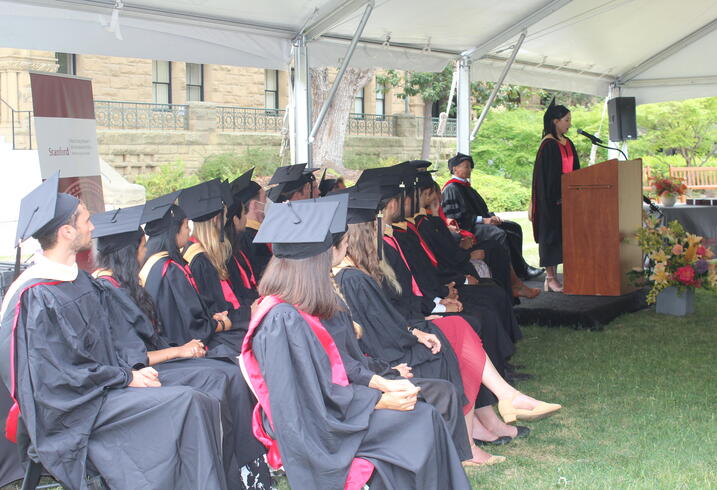
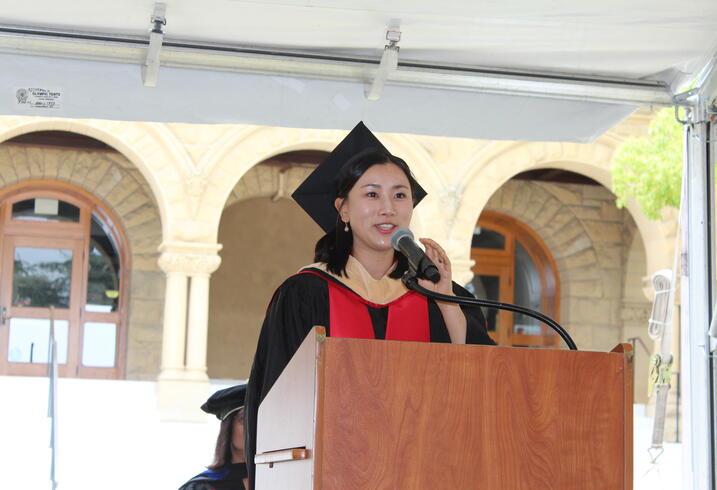

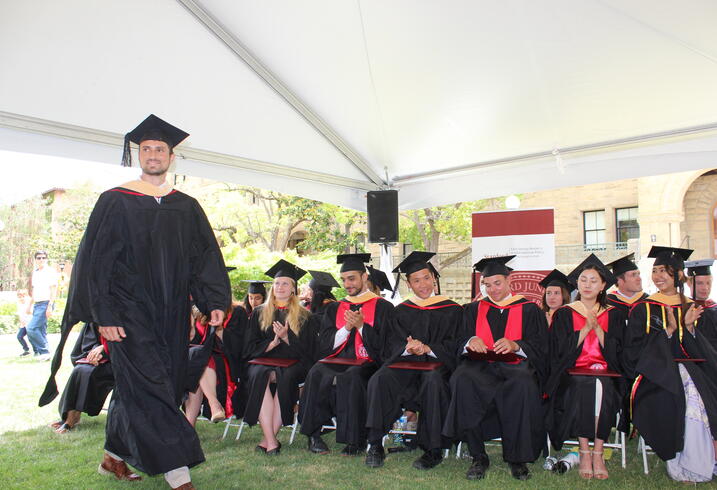

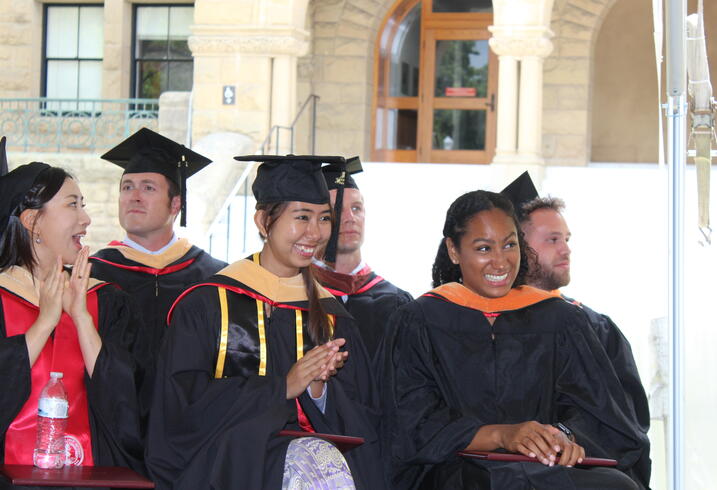


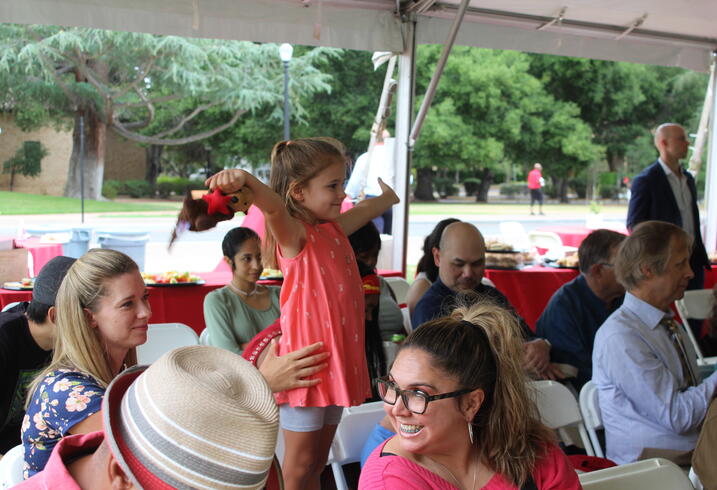
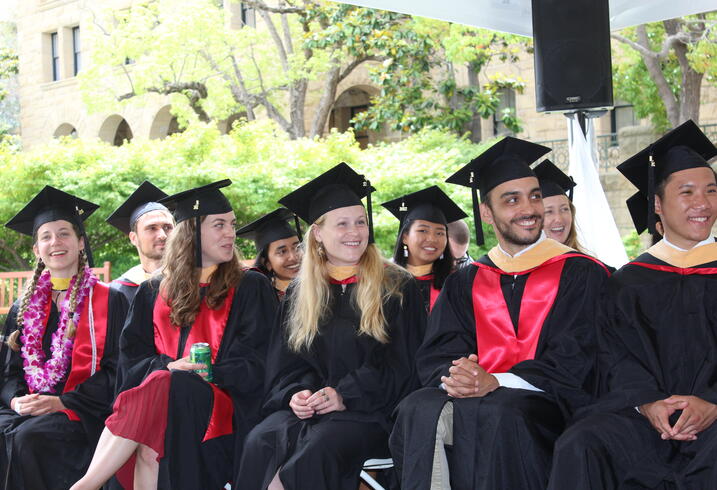
On to the Future
Building on Dr. McFaul’s remarks, Soomin Jun, the student speaker at the diploma ceremony, asked her fellow classmates to look to the future with a determination to stand up for values and rights, and to not lose the compassion and empathy that have bonded them together as a cohort.
“Let’s not forget to humble ourselves and do good for those next to us and in our communities,” she said. Jun continued, “Let’s not forget that we are far more capable of achieving anything beyond anyone’s imagination. Voice up and stand up for your values and ideas.”
As the 2022 class moves on from their time as MIP students at FSI, five will be staying at Stanford to pursue further studies in political science, environment and resources, public policy, and journalism. Others will remain in the greater Bay Area working on technology policy, energy policy, digital privacy, and statistical programming. Others are heading from the West Coast to the East to work in government, international development, and policy analysis, while four of the class members will be continuing their military careers in Texas, Washington State, Kentucky, and Kosovo.
Wherever they’re bound, the Master’s of International Policy Class of 2022 will not soon be forgotten.
“This class is special to me,” Michael McFaul said. “We here at FSI and MIP have tried to lean into you, and you have repeatedly shown that you are a special class and special group of people together at a special time, and we all feel bonded with you.”
Read More
After two years of online ceremonies due to the pandemic, the Ford Dorsey Master’s in International Policy program celebrated with a fully in-person graduation ceremony for the 2022 graduating class.
A Look Back at Two Years as a Master's of International Policy Student
As graduation approaches, many of our students are looking toward the future and new opportunities beyond the Farm. For the members of the Class of 2022 in the Ford Dorsey Master’s in International Policy (MIP), their time at Stanford was particularly unique. While they've finished their program together and in-person, the 24 members of the graduating class began their journey at the Freeman Spogli Institute for Internationsl Studies with a mix of online learning, outdoor classes, and health check requirements put in place to help mitigate the evolving COVID-19 pandemic.
Now at the end of their two years in the program we’ve asked four of our graduating students to share their thoughts on their time in MIP, what they’ve learned while at FSI, and where they will be heading next.
Sylvie Ashford | Starting with Questions, Not Answers
I am a co-term student, and I’m finishing up my B.A. in International Relations and Arabic at Stanford, with Honors in Democracy, Development, and the Rule of Law. I’m originally from Washington, D.C, and before coming to MIP I worked as a Middle East policy research assistant and campaign field organizer.
MIP was exactly what I hoped it would be. The program brings together fascinating people from different countries and life paths. I learned so much from them in and out of the classroom, which ended up being one of the most meaningful aspects of the program. Particularly after spending the first half of the program on Zoom, I loved every time we were able to come together as a cohort for classes and social events this year.
Being a part of this community has definitely changed how I think about the process of policymaking. What I've really come to understand is that policymaking should start with a question, not an answer, and with a rigorous effort to understand a specific social problem in its own context. After graduation, I'm moving to San Francisco to work at the Natural Resources Defense Council, and I know that keeping that perspective in mind will be a huge help to me as I’m doing policy analysis and advocacy work to support the NRDC's Climate and Clean Energy Program.

Sylvie Ashford
David Sprague | MIP Training, Military Service
When I first started as an MIP student, I didn’t realize how flexible the program would be or how many options there are to study in different fields. The program really emphasizes how to approach policy making through practical considerations, not just wishful thinking, whether that’s in computer programming and coding, international affairs, climate science, business, design thinking, or any of the other topics policy covers. There’s a lot of crossover with other programs on campus like the design school and the Graduate School of Business, I think this dynamic gives students a policy framework that's grounded in sound political strategies.
It’s definitely been a busy two years. Beyond being a MIP student, I’m also an active duty officer in the U.S. army, and I have a family. I’ve been very appreciative of how I was able to work within the program to try and keep all of those different responsibilities in balance. This is the best location, hands down, to pursue a policy degree, and there are so many opportunities to get experience with things you truly value, whether that’s family, friends, researching a topic you have strong opinions about, coding, or surfing.
After graduation, I will be returning to the Army to be an operations officer, or a prime integrator, in organizations ranging from 700 to 10,000 soldiers. I know that what I’ve learned here at FSI in the master’s program — both about policy making and myself — is going to help me serve our men and women in uniform better.

Shirin Kashani | Moving Forward, but Not Away
I am graduating this June, but I’m not going far! The program helped me realize my dreams to continue my career in academia, and so I will be pursuing a PhD in political science here at Stanford.
Part of the MIP experience is the one-on-one advisor matching that the program organizes for students. I was paired with Dr. Jeremy Weinstein, and he was so genuinely helpful and keen on setting me up for success. He met with me every two weeks to help me plan and prepare to be a competitive, successful PhD candidate after MIP.
For any students coming into the program, I would strongly advise you take advantage of how flexible the program is. The four specializations — Cyber, Environment, Governance and Development, and International Security — are there to guide you, not to put you in a box. Take courses from departments in your interests and customize your electives to whatever you think will help you. Don’t be afraid to go beyond what’s expected of you in the program to explore and make the best out of your two years on the Stanford campus!

Shirin Kashani
Mikk Raud | Coming Full Circle
Prior to starting this master’s program, I spent eight years studying and working in Beijing and Hong Kong, where I most recently worked for a global risk consultancy, assisting multinational companies with assessing cyber risk, threats, and regulations, as well as crisis management. One of my goals here at Stanford was to pivot away from Asia and refocus my studies in cyber security and cyber policy in the U.S.
Because it’s right in Silicon Valley and so close to the leading industries, the MIP program here at Stanford was my top choice of school, and it has not disappointed. Aside from being able to closely interact with top faculty members and professors such as Frank Fukuyama, I got to see guest speakers such as President Bill Clinton, President Barack Obama, and other high-level U.S. military officials that Stanford has brought to campus to speak to students. I’ve learned so much from classes like “INTLPOL 340: Technology, Innovation and Modern War,” taught by Steve Black and Joe Felter, and groups like the Hack Lab.
As my time at Stanford comes to an end, my academic experience and industry experience are making a full circle, and I will be going to work with the global financial technology firm where I interned over the summer. I will be working on technology and information security issues while I am in the U.S. by using the one year of optional practical training (OPT). Given the current events in Ukraine and their proximity to my native Estonia, at some point I would also like to be able to contribute my skills and experience back home.

Capstones from the 2022 Class of the Ford Dorsey Master's in International Policy





Each of the students in the 2022 class of the Ford Dorsey Master's in International Policy has had the opportunity to practice policymaking and problem solving hands-on in the Policy Change Studio, the two-quarter capstone course of the MIP program. Each year, second-year students partner with NGOs, think tanks, and other groups around the world to get out of the classroom and into the world to bring their know-how to some of the world's most pressing issues.
To learn more about what the 2022 cohort has been working on, explore some of the capstone presentations below.
The Ford Dorsey Master's in International Policy
Want to learn more? MIP holds admission events throughout the year, including graduate fairs and webinars, where you can meet our staff and ask questions about the program.
Read More
As the 2022 cohort of Master’s in International Policy students prepares to graduate, four classmates — Sylvie Ashford, David Sprauge, Shirin Kashani, and Mikk Raud — reflect on their experiences being part of the FSI community.
Off the Farm and Into the Field: Master's Students Practice Hands-on Policymaking
Every year, students in the Ford Dorsey Master's in International Policy (MIP) at the Freeman Spogli Institute for International Studies participate in the Policy Change Studio, a pioneering two-quarter program designed to provide our master's students with the know-how to bring about change in the world.
In 2020, many of the internships and outreach opportunities for our students were reduced or cancelled altogether because of the COVID-19 pandemic. By 2021, most of our students were able to participate in virtual programs with our policy partners. After two years of adapting, we're excited that the 2022 cohort of MIP students once again has the opportunity to work in-person with their partner organizations and meet changemakers on the ground to evaluate and fine-tune the impacts of their policy work.
Keep reading to see where our students have been working around the world.
Tunis, Tunisia
Emily Bauer, Soomin Jun and Kyle Thompson have been in Tunisia working with Wasabi, a communications company, working to understand the root causes of Tunisia’s large informal economy and find incentives for greater formal sector participation.





Pretoria, South Africa
Janani Mohan and Eli MacKinnon have been in South Africa with a local branch of the United Nations Development Programme to work on the longstanding problem of South Africa's highly skewed income distribution and vast disparities in employment access across different regions and social groups.
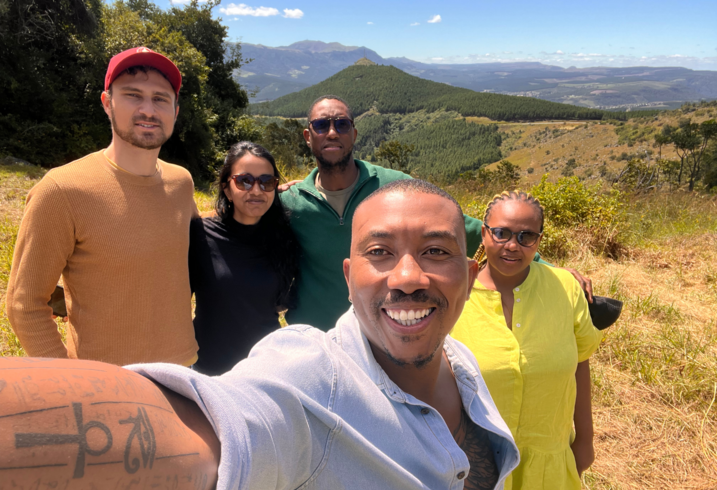
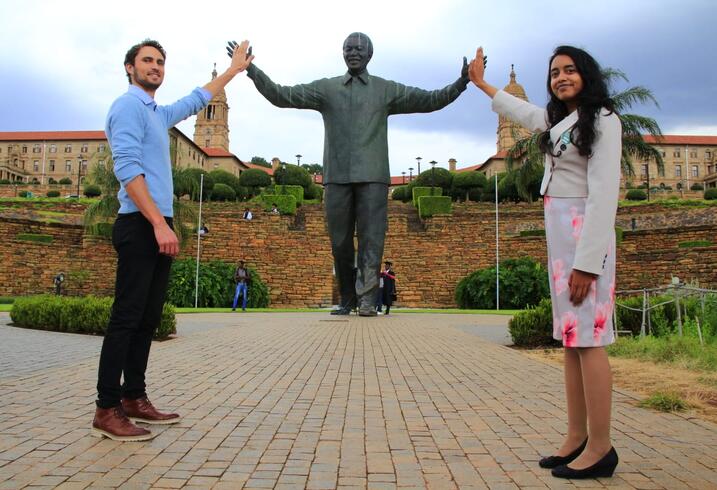
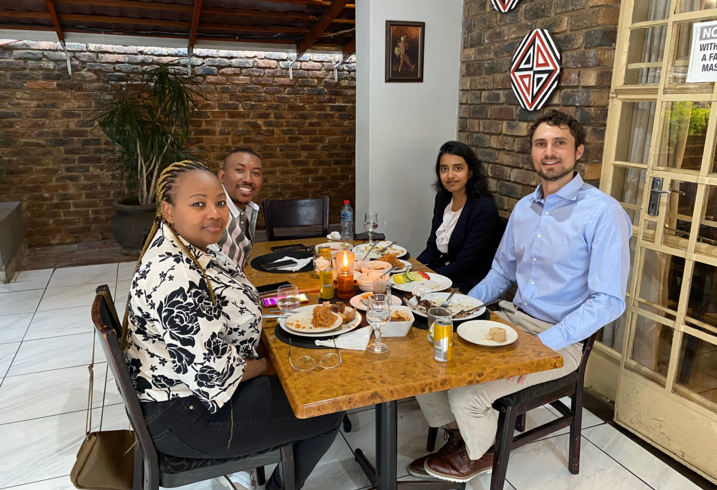
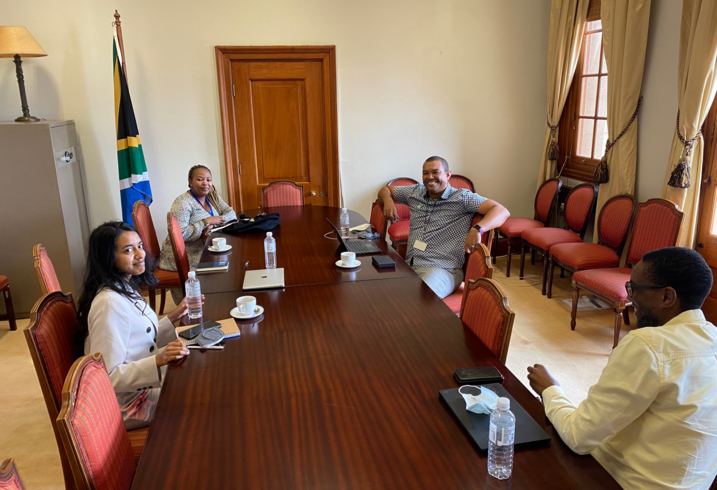
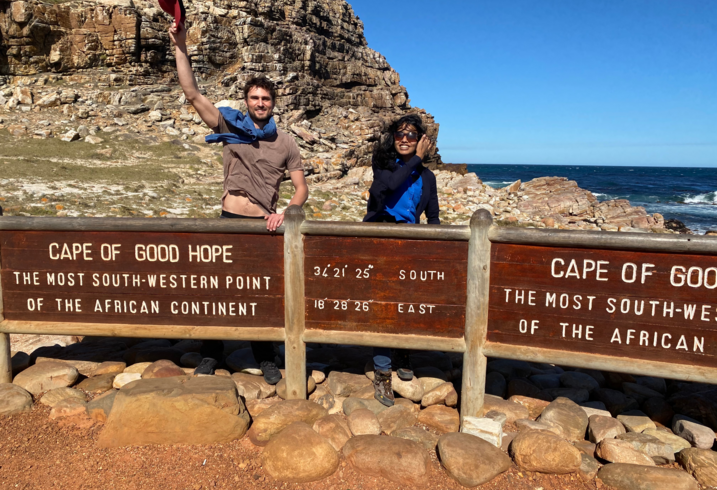
Jakarta, Indonesia
Sylvie Ashford, Calli Obern, Daniel Gajardo and Sarah Baran traveled to Indonesia to work with the U.S. Department of Energy's National Renewable Energy Laboratory's (NREL) local branch that is tackling policy barriers to decarbonizing industrial heat sources in the country.




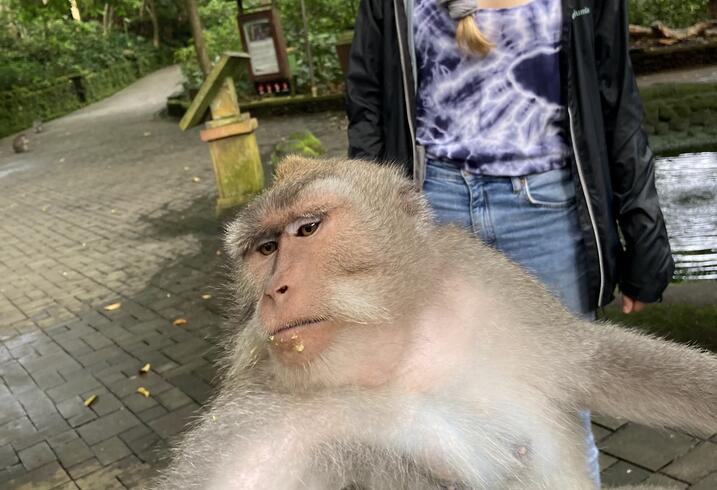
Washington D.C., United States
Eyal Zilberman, Chaeri Park, Me Me Khant and Mikk Raud went from the West Coast to the East to the Washington D.C.-based Cyber Threat Alliance (CTA) to identify ways the U.S. government can reduce the prevalence of ransomware attacks against public and private entities.



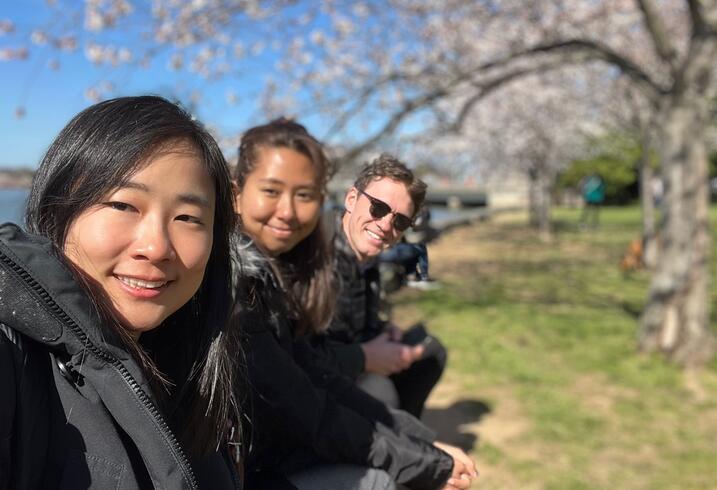
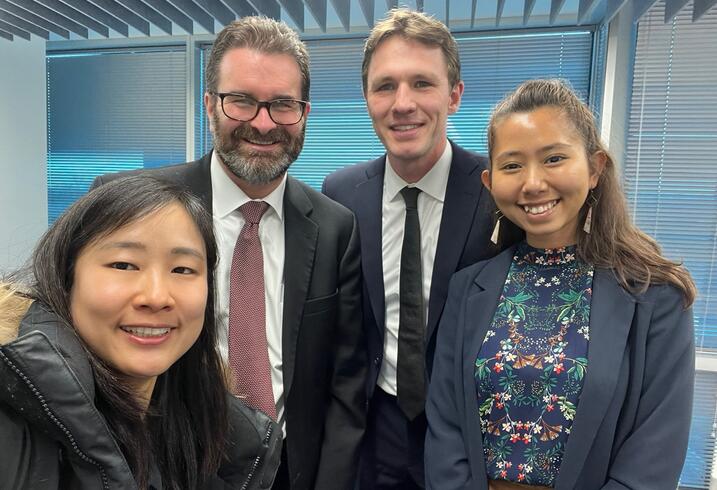
India
Shirin Kashani, Madeleine Morlino and Amanda Leavell are working with SheThePeople, a female-first digital media website founded by Draper Hills alumna Shaili Chopra, that focuses on women-related journalism.
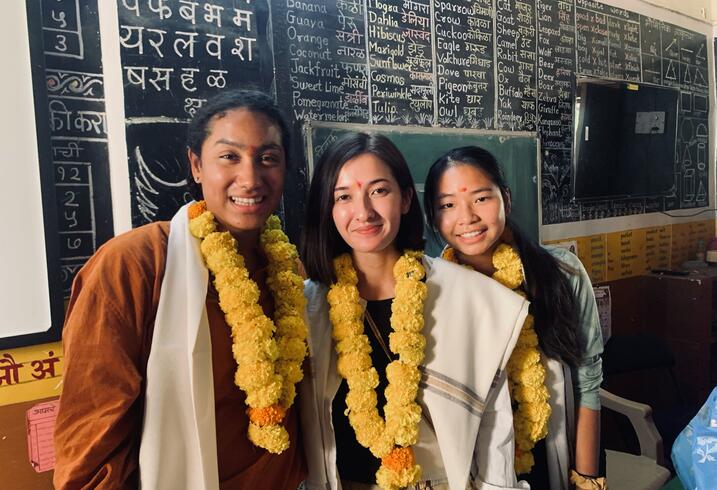
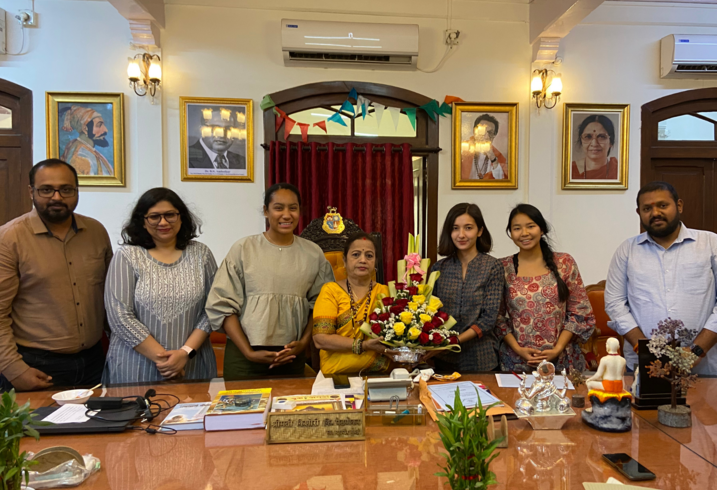
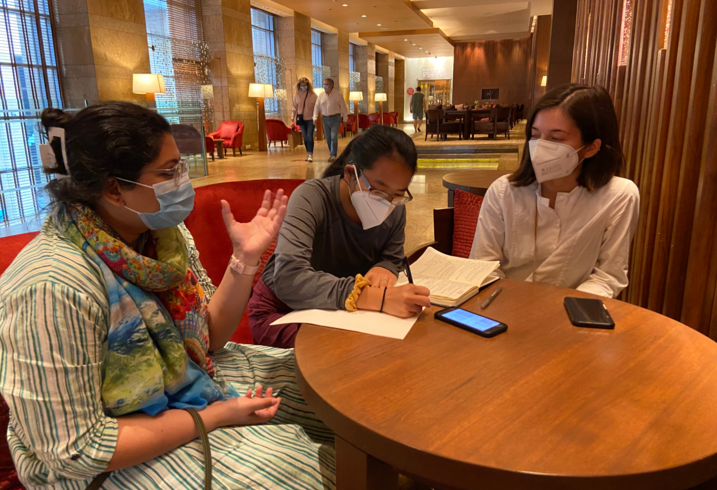

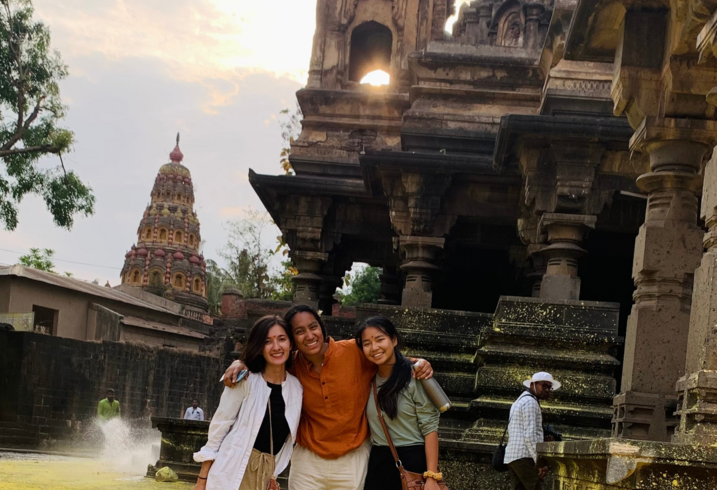
Tallinn, Estonia
Johannes Hui, Dave Sprague, Bradley Jackson and Arelena Shala partnered with the International Centre for Defense and Security (ICDS), a strategic policy think tank, to investigate the use of sub-threshold, grey-zone and hybrid military countermeasures to deter Russian provocations in the Baltic-Nordic region.

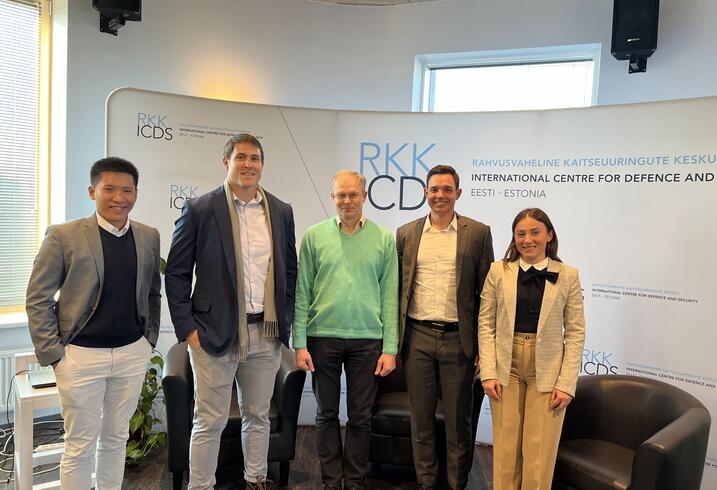


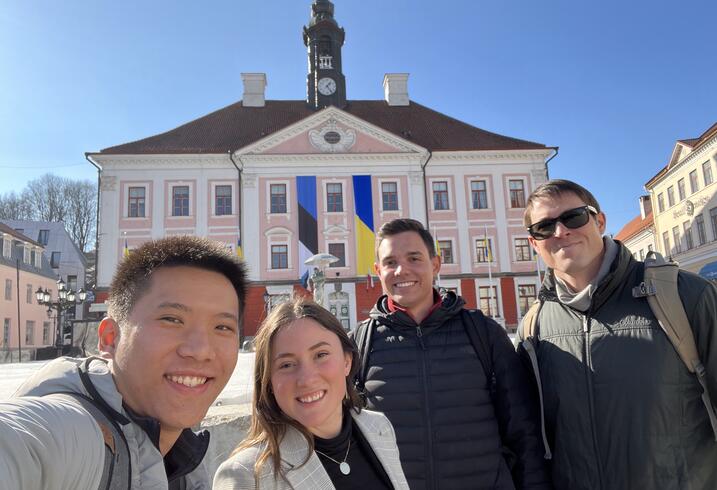
The Ford Dorsey Master's in International Policy
Want to learn more? MIP holds admission events throughout the year, including graduate fairs and webinars, where you can meet our staff and ask questions about the program.
Read More
The 2022 cohort of the Ford Dorsey Master's in International Policy has been busy this quarter getting out of the classroom and into hands-on policymaking with partner organizations in Tunisia, Estonia, India and beyond.
Workshop Report: The Transatlantic Dialogue on Military Cyber Operations-Amsterdam
In Aug. 2019, Bobby Chesney (from Strauss Center at the University of Texas at Austin) and Max Smeets (from ETH Zurich and also Stanford University’s Center for International Security and Cooperation (CISAC)) convened a workshop in Amsterdam focusing on military operations in the cyber domain, from a transatlantic perspective. The “Transatlantic Dialogue on Military Cyber Operations—Amsterdam” gathered experts from military, civilian, and academic institutions hailing from a range of countries, including the United States, United Kingdom, Germany, the Netherlands, Denmark, Estonia, and France.
Read the Rest at Lawfare Blog
Laura Jakli
I am a Junior Fellow at the Harvard Society of Fellows. Starting in 2023, I will be an Assistant Professor at Harvard Business School's Business, Government and the International Economy (BGIE) unit.
My research examines political extremism, destigmatization, and radicalization, focusing on the role of popularity cues in online media. My related research examines a broad range of threats to democratic governance, including authoritarian encroachment, ethnic prejudice in public goods allocation, and misinformation.
My dissertation won APSA's Ernst B. Haas Award for the best dissertation on European Politics. I am currently working on my book project, Engineering Extremism, with generous funding from the William F. Milton Fund at Harvard.
My published work has appeared in the American Political Science Review, Governance, International Studies Quarterly, Public Administration Review, and the Virginia Journal of International Law, along with an edited volume in Democratization (Oxford University Press). My research has been featured in KQED/NPR, The Washington Post, and VICE News.
I received my Ph.D. in Political Science at the University of California, Berkeley in 2020. I was a Predoctoral Research Fellow at the Center on Democracy, Development and the Rule of Law at Stanford University and the Stanford Program on Democracy and the Internet. I hold a B.A. (Magna Cum Laude; Phi Beta Kappa) from Cornell University and an M.A. (with Distinction) from the University of California, Berkeley.
President Ilves of Estonia discusses merits of electronic voting
On Sept. 24, Stanford’s Center on Democracy, Development, and the Rule of Law, together with the Atlantic Council, hosted Estonian President Toomas Hendrik Ilves for a discussion on technology and elections. The conversation - moderated by CDDRL Director Francis Fukuyama – examined Estonia’s technological infrastructure and their use of electronic voting in eight of their past ten elections. The conversation provoked greater questions of security and privacy surrounding cyber governance, as well as the limits of transparency.
For more information on CDDRL, please visit: cddrl.fsi.stanford.edu
For more information on the Atlantic Council, please visit: atlanticcouncil.org
Media Mentions
28 Sept. 2015. Ilves and political scientist Francis Fukuyama discussed IT future at Stanford University. Juhan Tere. The Baltic Course.
Slideshow
Democracy Rebooted: The Future of Technology in Elections
[[{"fid":"220174","view_mode":"crop_870xauto","fields":{"format":"crop_870xauto","field_file_image_description[und][0][value]":"Toomas Hendrik Ilves. Reception at the 36th Annual Conference of the Association of Philosophy and Literature.","field_file_image_alt_text[und][0][value]":"","field_file_image_title_text[und][0][value]":"","field_credit[und][0][value]":"Rene Riisalu","field_caption[und][0][value]":"Toomas Hendrik Ilves. Reception at the 36th Annual Conference of the Association of Philosophy and Literature.","field_related_image_aspect[und][0][value]":"","thumbnails":"crop_870xauto","pp_lightbox":false,"pp_description":false},"type":"media","attributes":{"width":"870","class":"media-element file-crop-870xauto"}}]]
Please RSVP. We will close registration once the attendance list reaches 250 people.
Abstract:
On September 24, Stanford’s Center on Democracy, Development and the Rule of Law in partnership with The Atlantic Council will present a public address by President Toomas Ilves of Estonia on the future of technology in elections. Elections are set to take center stage in the coming year, in this country and abroad. As technology plays an increasingly large role in people’s lives, the discussion—moderated by CDDRL Director Francis Fukuyama— will explore its role in elections worldwide. President Ilves of Estonia—the only country in the world to use Internet voting for national elections— will discuss how technology can promote transparency, inclusion, and stronger democracies.
This event is a partnership between Stanford’s Center on Democracy, Development and the Rule of Law and The Atlantic Council, a DC-based think-tank committed to promoting constructive leadership and engagement in international affairs.
Bio:
Toomas Hendrik Ilves was elected President of the Republic of Estonia in 2006 and re-elected in 2011. He served as Chairman of the EU Task Force on eHealth from 2011 to 2012, and since November 2012 he became Chairman of the European Cloud Partnership Steering Board. His interest in computers stems from an early age – he learned to program at the age of 13 - and he has been promoting Estonia’s IT-development since the country restored its independence. Prior to his presidency, he served as Ambassador of Estonia to the United States of America and Canada (1993 -1996). In this position, he initiated the Tiger Leap initiative to computerize and connect all Estonian schools online. He also served as Minister of Foreign Affairs (1996-1998; 1998-2002) and Member of the Estonian Parliament (2002-2004). In recent years, President Ilves has spoken and written extensively on integration, transatlantic relations, e-government, and cyber security. He graduated from Columbia University in 1976 and received his Master’s degree in Psychology from the University of Pennsylvania in 1978.





















































